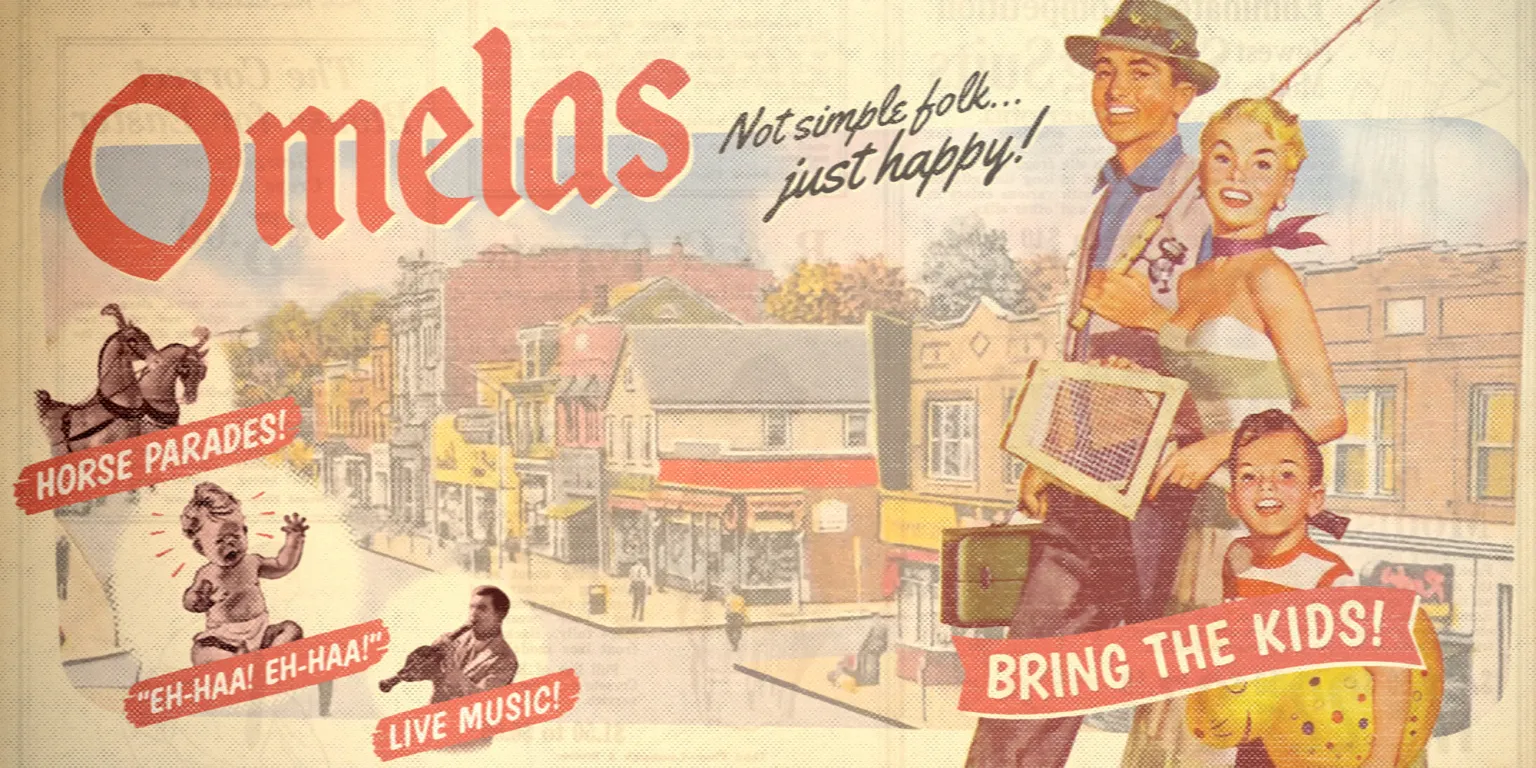"Why Don't We Just Kill the Kid in the Omelas Hole" by Isabel J. Kim
Originally Posted 9/19/24

Quick Overview
Click Here to Read "Why Don't We Just Kill the Kid in the Omelas Hole" by Isabel J. Kim online.
This is another short story that took me all of maybe 10-15 minutes tops to read. I'd recommend you read "The Ones Who Walk Away From Omelas" by Ursula K LeGuin before reading this short story, however I read this one first and I think it's fine either way. It's another short story about a perfect city, with its one secret. This time though, people aren't really standing for it anymore.
In Depth Review
This whole next section is going to be spoilers, so if you don't want to see any please make sure to read the short story first.
I mentioned in my blog post about "The Ones Who Walk Away From Omelas" how I really appreciated how the story really sort of beat you over the head with the message it was trying to get across. This story goes even more over the top with it. Hell the author addresses it directly:
It turned out that the dead murderer had underestimated the Omelans, because things continued in this cyclical fashion for a while. Kids were put in a series of holes and were summarily killed. The deaths were reported on public television and were dissected badly on social media through a variety of angles. Like: “This kid is a metaphor for the third world and for the slave labor that mines the rare metals that go into iPhones and for the boys who cross the border to work in the fields while they’re underage and the girls who are sold into marriage to pedophiles.”
Unsurprisingly a lot of the original themes from Omelas are present here. It's just a bit more adapted for modern times, and again much more direct with it. In this rendition some people of Omelas have gotten tired of seeing the child suffer, and so decide to simply kill it, to prove a point. This continues on and on to the point where no one knows anymore if there is even a kid in a hole. And people sort of just get used to it. Actually one of the things the author brings up is how some Omelans got mad because it was well known that if you had issues with the kid in the hole, you were just supposed to leave Omelas, not actually do something about it. The quote here I liked:
What the Omelans didn’t say was that their second grievance was due to the fact that the kid killers had broken the unspoken code: if you had a problem with the load-bearing suffering child, you were supposed to get the hell out of Omelas and keep it to yourself. You weren’t supposed to kill the kid. As a teenager, you were supposed to learn the blunt truth that your society was built on a single ongoing act of senseless, meaningless cruelty, and then you were supposed to cry about it or rage about it, but either way you were supposed to get over it and grow up and get on with your fully-paid-for-by-the-state education system and your festivals and your legal weed and your drooz.
The quote above can also obviously be about how one thing people will say when you criticize the US is "If you don't like it here, then just leave". It's very seldom people are actually okay with wanting to change things it seems.
One of the things that came to mind for me while reading this story was Gun Control here in the US, specifically with school shootings. Later in the short story they talk about how kids just keep dying, and people just sort of start tuning out from it. They accept it, like the suffering kid, as just a part of life.
Another connection that came to me, especially at the end, was how often people will see something horrible going on in a different country and go "Oh, thank God that's not happening here. Thank God we're better than that", while completely ignoring what's going on in their own countries. The story quite literally ends with:
And they (the ones who visit Omelas) say: Thank God we aren’t dealing with that horrid wound in society. Thank God there is somewhere that shows us how fucking bad things could get. What a pit in the ground. What a fucked up little trolley problem. What a lesson for us. Thank God we don’t live there. Thank God we know it exists.
Which again, just kind of continues the trend of "We recognize this is a thing, but nothing changes".
Wrap up
I guess it's one of those things where I'm not really sure what more to say about this piece. A lot of my thoughts about this one are similar to the original Omelas story. I enjoyed reading it, and sort of think others will too.